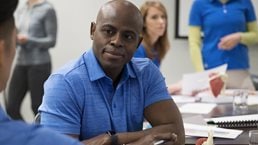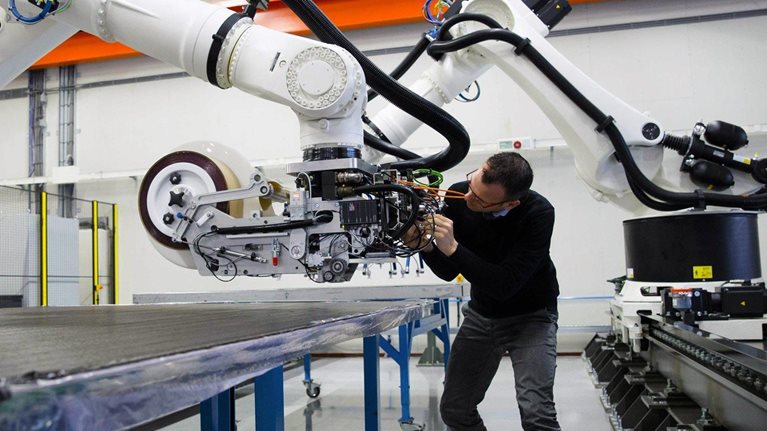For an 18-year-old today, figuring out what kind of education and skills to acquire is an increasingly difficult undertaking. Machines are already conducting data mining for lawyers and writing basic press releases and news stories. In coming years and decades, the technology is sure to develop and encompass ever more human work activities.
Yet machines cannot do everything. To be as productive as it could be, this new automation age will also require a range of human skills in the workplace, from technological expertise to essential social and emotional capabilities.
In this video, one in a four-part series, experts from academia and industry join McKinsey partners to discuss the skills likely to be in demand and how young people today can prepare for a world in which people will interact ever more closely with machines. The interviews were filmed in April at the Digital Future of Work Summit in New York, which was hosted by the McKinsey Global Institute (MGI) and New York University’s Stern School of Business.
Interviewees include NYU provost Katherine Fleming and professors Arun Sundararajan and Vasant Dhar; Tom Siebel, founder, chairman, and CEO of C3 IoT; Anne-Marie Slaughter, president and CEO of New America; Jeff Wald, cofounder and president of WorkMarket; Allen Blue, cofounder of LinkedIn; Mike Rosenbaum, CEO of Arena; along with MGI chairman and director James Manyika and MGI partners Michael Chui and Susan Lund.
Other videos in this series include:
- What will automation change?
- The future of the 9-to-5 job
- What are the policy implications of automation?
Interview transcript
Susan Lund: For young people today, what’s clear is that they’re going to need to continue to learn throughout their lifetime. The idea that you get an education when you’re young and then you stop and you go and work for 40 or 50 years with that educational training and that’s it—that’s over. All of us are going to have to continue to adapt, get new skills, and possibly go back for different types of training and credentials. What’s very clear is that what our kids need to do is learn how to learn and become very flexible and adaptable.
Arun Sundararajan: The future of work that a college graduate is looking at today is so different from the future of work that I looked at when I was a college graduate. There’s far less structure, there’s far less predictability. You don’t know that you can invest in a particular set of capabilities today and that will be valuable in 20 years. We used to be able to say, “This is the career I’m going to choose.” That’s a difficult bet to make today with so much change.
Vasant Dhar: More generally what I tell students is that it would help if you had the skills that are required to deal with information because those are the core skills that are necessary these days to help you learn new things. This ability to learn things on your own to some extent will be driven by the core skills you have and how you can handle and process information.
Tom Siebel: The most important message is you need to prepare for yourself. If people are sitting back, waiting to be candidly taken care of by a welfare state, I don’t think that’s a very good answer.
James Manyika: We found that, for example, in something like 60 percent of all occupations an average 30 percent of their work activities are automatable. What does that mean? We’re going to see more people working alongside machines, whether you call that artificial augmentation or augmented intelligence, but we’re going to see a lot more of that. That’s quite important because it raises our whole sense of imperatives. It means that more skill is going to be required to make the most of what the machines can do for the humans.

Workforce transitions in a time of automation
Advice for an 18-year-old today
Anne-Marie Slaughter: I’m the mother of two sons, 18 and 20, and I think about how to advise them all the time. What I tell them is: It matters far less what they choose to study than the skills they build. I advise them to hone creative skills. I’ve actually got an actor and a musician, so that’s not hard. But I tell them to think about analytic skills, creative skills, human skills, the kind of self-presentation, being able to connect to others, being able to sell in the sense of persuade.
Katherine Fleming: They’re going to need skills that they can only get by doing things. So every time they’re given the opportunity to do something, they should say yes to it, even if it doesn’t strike them initially as being exactly what they want to be doing.
Jeff Wald: What are you passionate about? Does that map to what skill sets are needed? Become a subject matter expert in a skill set that will have demand, and then be capable of marketing and monetizing that.
Allen Blue: Look for that first job to be one where you learn not the specifics, but where you learn the generalities about actually thriving in the world of work.
James Manyika: I think of my own son, who’s 16. On the one hand, I think he should study science and he should understand systems. But would I tell him to focus just on coding? I don’t think I would because machines are going to be very good at coding, by the way. Would I ask him to focus just on statistics? No, because I think machines can calculate statistics and analytical things incredibly well. But it’s important to understand how statistics works. Not that that’s what he’s going to be doing, but because he needs to understand that, and have a more system level view of those things, and be able to think in a computer science like way.
Mike Rosenbaum: The skills that I would recommend an 18-year-old think about, which may or may not fit in the traditional definition of skills, are to try stuff that you never thought about. If you try things that you never thought about, you may find that you have skills and talents that you never realized you had. Being able to challenge your own assumptions about what you’re good at and what you can do creates massive opportunities to put yourself on a path that’ll make you happy and successful.
For more details of the conference proceedings and videos of the full panels, please visit the Digital Future of Work Summit site.


